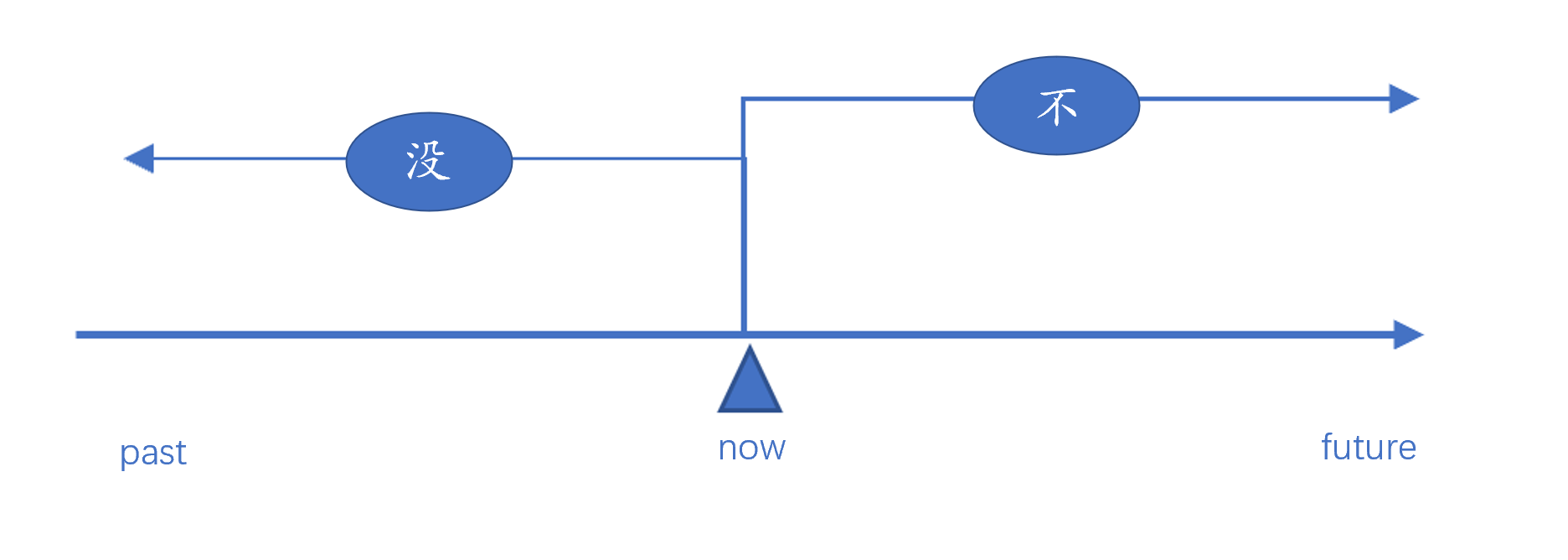Both “不”and “没” can indicate negation, but they are not interchangeable , and how they should be used correctly can actually be explained by a timeline.

不 (bù) Negates in the Present and Future
不 (bù) is generally used to negate an action that you do not want to do or do not intend to do (in the future). So expressing things like “I don’t want to go” or “I’m not going” would be uses of 不 (bù).
Eg.

(explain:1 I plan to skip diner tonight. 2 I don’t work tomorrow.)
不 (bù) Negates Habitual Actions
不 (bù) can be used to negate habitual actions, to express what you just aren’t in the habit of doing, such as eating meat, or watching TV, or drinking alcohol. This is simply done by placing 不 (bù) in front of the verb.
Eg.

(explain:1 He could be an introvert.2 She might be a vegetarian.)
不 (bù) Is Normally Used with Adjectives
When it comes to a simple negation of an adjective (such as “not cold”), use 不 (bù).
Eg.

(explain: 1 高means high,adjective. 2 长means long, adjective.)
没 (méi) Negates Past Actions
没 (méi) and 没有 (méiyǒu) can both be used to negate actions that occurred in the past, or to say that something has not happened yet.
Eg.

(explain:1 He didn’t go to my house yesterday. 2 She hasn’t go to work yet.)
Only 没 (méi) Negates 有 (yǒu)
没 (méi) can be used to negate the verb 有 (yǒu) (“to have”) to mean “do not have.” You can only use 没 (méi) to convey this meaning. It is grammatically incorrect to use 不 (bù) to negate 有 (yǒu).
Eg.

(explain:1 I don’t have brothers. 2 Mom didn’t make diner.)
Got it? Let’s see how much you’ve got! using “不” ,”没” or “没有”.
1 我___钱。(I don’t have money.)
2 我昨天___喝酒。(I didn’t drink yesterday.)
3 今天___冷。(It’s not cold outside.)
4 我家__远。(My house is not far from here.)
5 你__坏。(You are not a bad person.)